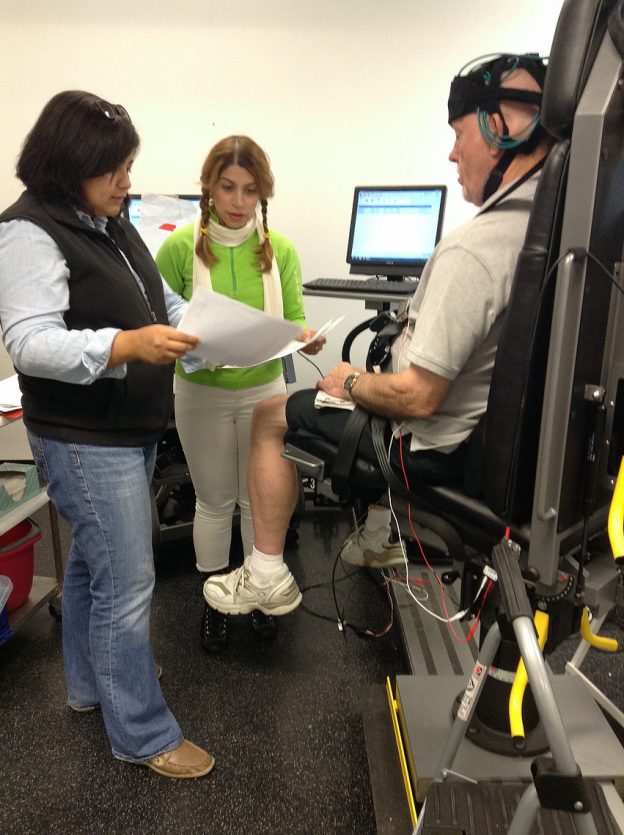Obesity, a pervasive condition in the geriatric population, has serious implications on the structures and functions of both the aging brain and the musculoskeletal systems that have been linked to cognitive and neuromuscular decline, respectively. However, it is not currently known if motor impairments in obese older adults are linked to obesity-related neural dysfunction. Building on our first line of research (role of brain in fatigue development), we explore functional brain activation across different motor-function related cortical regions in response to fatigue to investigate the impact of obesity on the aging brain. We examine fatigability of important lower extremity muscles that are critical to activities of daily living such as balance/locomotion. Understanding compensatory activation of different brain regions, or the lack thereof, along with musculoskeletal outcomes during the use of these muscles will provide critical information on the neuromuscular limits of the obese geriatric population. This can provide the evidence base to inform development of specific falls prevention interventions that target obesity-related improvements in brain and motor function in older adults. This research is funded by the NIA.
